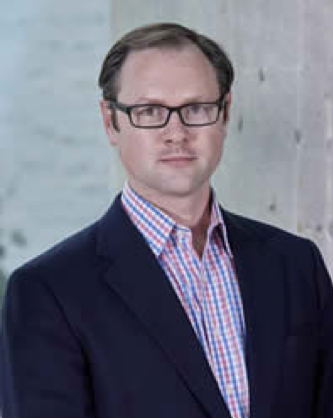Faculty Profile: Dr. James MacKillop, PhD
AUTHOR: Carly McIntyre-Wood

Dr. James MacKillop is one of the supervising Faculty in the Neuroscience Graduate Program. He is also the inaugural holder of the Peter Boris Chair in Addictions Research, Director of the Peter Boris Centre for Addictions Research, and Co-Director of the Michael G. DeGroote Centre for Medicinal Cannabis Research. He has received several awards including the Award for Distinguished Scientific Early Career Contributions to Psychology from the American Psychological Association, and most recently was awarded the 2019 Royal-Mach-Gaensslen Prize for Mental Health Research.
How did you become interested in addictions research?
I wasn’t initially interested in research, but it was an integral part of my doctoral training as a clinical psychologist so I knew it was a requirement. Contrary to my expectations, however, once I started, my interest skyrocketed. This was further kindled as I came to realize research is a highly collaborative undertaking; a ‘team sport,’ so to speak. I’m delighted to say my initial preconceptions about research were quickly proven incorrect and I haven’t looked back.
I came to be interested in addiction because substance misuse was ubiquitous when I was early in my career (and still is). Understanding the paradoxical motivation for a substance despite its manifest risks and adverse consequences was at the heart of my interest. Subsequently, however, studying addiction provided a crucible for investigating a wide variety of related phenomena, including the nature of self-control, the varying contributions of genetics and environmental exposures, and how the brain processes rewards and punishments.
What were some important steps you took during your graduate studies which helped you achieve your current position?
I started with a strong theoretical foundation in my area of focus, which provided a framework for a research program. Within that framework, I then deeply immersed myself in numerous empirical projects to learn different paradigms and subfields. Those studies also provided me with exemplars of how different studies are run. Finally, my doctoral training, internship, and fellowship collectively exposed me to many different faculty members and their research programs. This showed me there is not only one ‘right’ way to run a research program and gave me models of thinking about my career.
Where there any noteworthy obstacles you faced during your career path that you had to overcome?
Like everyone, early in my career I faced the challenges of manuscripts not being accepted or grants not being funded, but those were valuable lessons nonetheless. They helped me develop a thick skin and learn the iterative process needed for getting studies published or grants funded.
What advice would you give current graduate students early on in their careers?
Graduate school is often the most intellectually liberated period a person will ever have and I encourage graduate students to use that opportunity to its full potential. It is a wonderful time to immerse yourself fully in diverse aspects of a field and to lay the foundation for a successful career by learning a portfolio of different skills. It is not a race to the finish line and you don’t win prizes for finishing quickly. That being said, don’t forget that graduate school is ultimately training for a career, not an end unto itself.
What aspect of your current position do you enjoy the most?
I enjoy the dynamism of my current roles. With a number of studies and initiatives taking place concurrently, new findings are frequently emerging. Sometimes they are small findings, and sometimes major findings, but the process of discovery has never lost its excitement for me.
Thanks to Dr. MacKillop for taking time out of his busy schedule to offer some valuable advice to the Neuroscience Graduate community! Congratulations on your recent award!
.jpg)